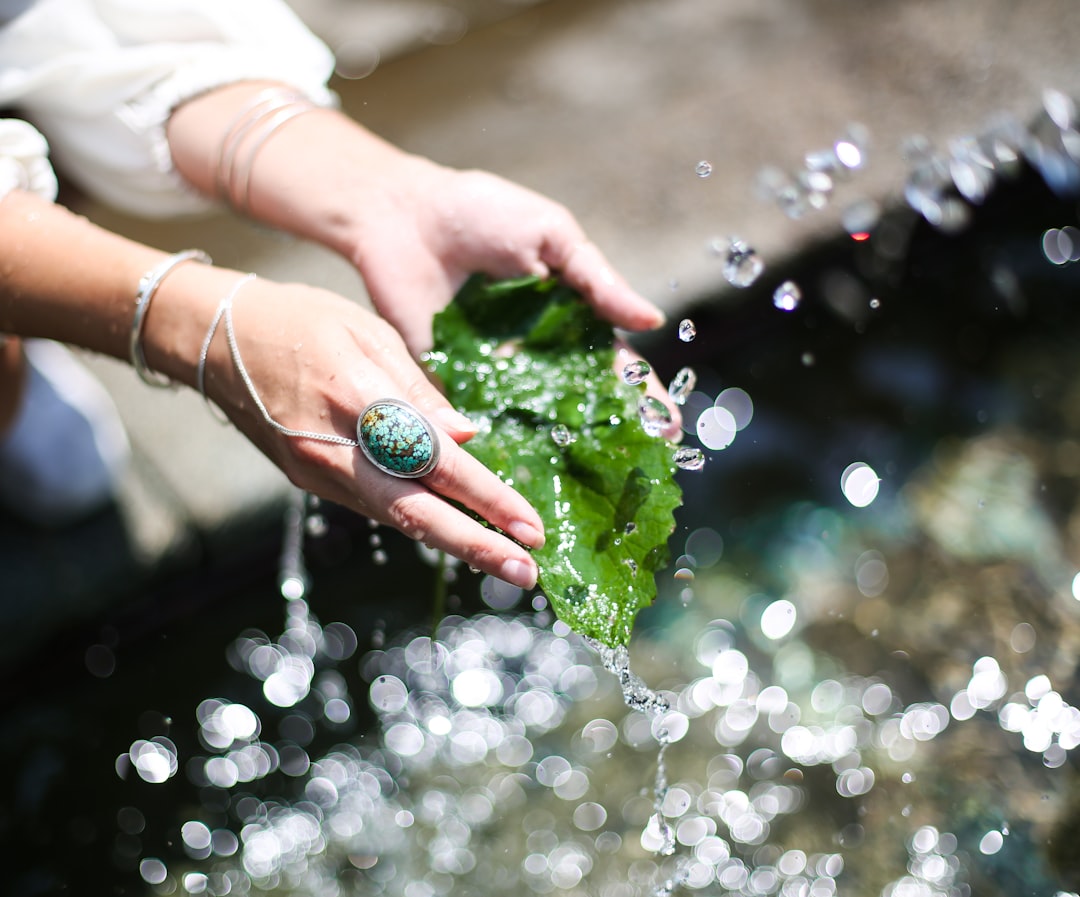In recent years, the seafood industry has witnessed a growing trend of corporate greenwashing, a practice where companies exaggerate or misrepresent their environmental efforts to appeal to eco-conscious consumers. This phenomenon is particularly concerning given the significant environmental challenges facing the oceans, including overfishing, habitat destruction, and pollution. As consumers become increasingly aware of these issues, many seafood companies have sought to enhance their public image by adopting green marketing strategies.
However, the authenticity of these claims often comes into question, leading to a complex landscape where genuine sustainability efforts are obscured by misleading narratives. Greenwashing not only undermines the credibility of companies that are genuinely committed to sustainable practices but also poses a significant risk to the environment. When consumers are misled about the sustainability of seafood products, they may inadvertently support practices that contribute to ecological degradation.
This article aims to explore the implications of greenwashing in the seafood industry, highlighting its impact on both the environment and consumers while providing insights into how stakeholders can navigate this challenging landscape.
Key Takeaways
- Greenwashing in the seafood industry misleads consumers and harms environmental efforts.
- Recognizing false eco-friendly claims requires awareness of certification and labeling standards.
- Transparency, accountability, and ethical business practices are crucial for genuine sustainability.
- Consumers, NGOs, and governments all play key roles in combating greenwashing.
- Moving forward demands stronger regulations and collaborative efforts for a truly sustainable seafood industry.
The Impact of Greenwashing on the Environment and Consumers
The ramifications of greenwashing extend far beyond mere consumer deception; they have profound implications for environmental conservation efforts. When companies engage in greenwashing, they divert attention from the real issues plaguing the seafood industry, such as overfishing and unsustainable aquaculture practices. This misrepresentation can lead to a lack of accountability, as consumers may believe they are making environmentally responsible choices when, in fact, they are supporting harmful practices.
Consequently, the ecological balance of marine ecosystems continues to deteriorate, exacerbating problems like species extinction and habitat loss. For consumers, the impact of greenwashing can be equally detrimental. As individuals strive to make informed choices about their food sources, they often rely on labels and marketing claims to guide their decisions.
When these claims are misleading or false, consumers may unknowingly contribute to environmental harm while believing they are supporting sustainable practices. This erosion of trust can lead to skepticism about all sustainability claims, making it more challenging for genuinely responsible companies to gain recognition and support. Ultimately, greenwashing creates a cycle of misinformation that hinders progress toward a more sustainable seafood industry.
Examples of Greenwashing in the Seafood Industry

Numerous instances of greenwashing have emerged within the seafood industry, illustrating the various tactics companies employ to mislead consumers. One notable example involves brands that prominently feature images of pristine oceans and thriving marine life on their packaging while failing to disclose unsustainable sourcing practices. These companies may claim their products are “wild-caught” or “sustainably sourced,” yet upon closer examination, it becomes evident that their fishing methods contribute to significant ecological harm, such as bycatch and habitat destruction.
Another common tactic involves the use of vague or misleading certifications that lack rigorous standards. Some seafood products may carry labels suggesting they meet certain environmental criteria without providing clear information about what those criteria entail. For instance, a product might be labeled as “dolphin-safe” without any context regarding the broader environmental impact of its fishing methods.
Such examples highlight the need for consumers to remain vigilant and informed about the claims made by seafood brands, as not all certifications are created equal.
How to Spot Greenwashing in Seafood Products
| Indicator | Description | What to Look For | Red Flags |
|---|---|---|---|
| Vague Language | Use of ambiguous or unclear terms like “eco-friendly” or “sustainable” without specifics | Clear definitions or certifications explaining sustainability claims | Terms without explanation or evidence |
| Lack of Certification | No third-party verification of sustainability claims | Recognized certifications such as MSC, ASC, or Seafood Watch | No certification logos or unverifiable claims |
| Misleading Labels | Labels that imply environmental benefits without supporting data | Labels that specify fishing methods, origin, and sustainability practices | Labels like “natural” or “green” without context |
| Overemphasis on Minor Attributes | Highlighting small positive aspects to distract from larger environmental issues | Balanced information covering all environmental impacts | Focus on packaging or minor details while ignoring fishing practices |
| Unsubstantiated Claims | Claims not backed by data or scientific research | References to studies, data, or transparent sourcing | Claims without evidence or unverifiable statements |
Identifying greenwashing in seafood products requires a discerning eye and a critical approach to marketing claims. One effective strategy is to scrutinize labels for specific certifications from reputable organizations that have established rigorous sustainability standards. Consumers should look for certifications from well-known entities such as the Marine Stewardship Council (MSC) or the Aquaculture Stewardship Council (ASC), which provide clear guidelines for sustainable fishing and aquaculture practices.
Additionally, consumers should be wary of vague language and buzzwords that lack concrete definitions.
It is essential for consumers to seek out detailed information about sourcing practices and fishing methods rather than relying solely on marketing claims.
By doing so, they can make more informed choices that align with their values and contribute to genuine sustainability efforts.
The Role of Certification and Labeling in Combatting Greenwashing
Certification and labeling play a crucial role in combating greenwashing within the seafood industry by providing consumers with reliable information about the sustainability of products. Reputable certification programs establish clear criteria for sustainable fishing and aquaculture practices, ensuring that companies adhere to environmentally responsible methods. These certifications serve as a valuable tool for consumers seeking to make informed choices while also holding companies accountable for their claims.
However, not all certifications are created equal. Some may lack transparency or rigorous standards, leading to confusion among consumers. It is essential for stakeholders in the seafood industry to advocate for stronger regulations governing certification programs to ensure that they genuinely reflect sustainable practices.
By promoting transparency in labeling and certification processes, the industry can help restore consumer trust and encourage more responsible consumption patterns.
The Importance of Transparency and Accountability in the Seafood Industry

Transparency and accountability are fundamental principles that must underpin the seafood industry if it is to move toward genuine sustainability. Companies must be willing to disclose information about their sourcing practices, supply chains, and environmental impacts openly. This level of transparency not only fosters trust among consumers but also encourages companies to adopt more responsible practices as they become accountable for their actions.
Moreover, transparency can empower consumers to make informed choices that align with their values. When companies provide clear information about their sustainability efforts and the challenges they face, consumers are better equipped to support those that are genuinely committed to positive change. By prioritizing transparency and accountability, the seafood industry can create an environment where greenwashing is less likely to thrive, ultimately benefiting both consumers and the environment.
The Responsibility of Consumers in Addressing Greenwashing
Consumers play a pivotal role in addressing greenwashing within the seafood industry by demanding greater accountability from companies and making informed purchasing decisions. By actively seeking out products with reputable certifications and scrutinizing marketing claims, consumers can send a powerful message that they value genuine sustainability efforts over misleading narratives. This collective demand for transparency can drive companies to adopt more responsible practices and reduce instances of greenwashing.
Additionally, consumers can engage with brands through social media and other platforms to hold them accountable for their claims. By asking questions about sourcing practices and expressing concerns about misleading marketing tactics, consumers can encourage companies to prioritize authenticity in their sustainability efforts. Ultimately, consumer awareness and activism are essential components in combating greenwashing and fostering a more sustainable seafood industry.
Government Regulations and Policies to Address Greenwashing in the Seafood Industry
Government regulations and policies play a critical role in addressing greenwashing within the seafood industry by establishing clear guidelines for labeling and marketing claims. Regulatory bodies can implement standards that require companies to provide accurate information about their sourcing practices and environmental impacts. By enforcing these standards, governments can help protect consumers from misleading claims while promoting genuine sustainability efforts.
Furthermore, governments can support research and development initiatives aimed at improving sustainable fishing and aquaculture practices. By investing in innovative technologies and practices that enhance environmental stewardship, policymakers can create an environment where responsible companies thrive while discouraging those that engage in greenwashing. Collaborative efforts between governments, industry stakeholders, and advocacy groups are essential for creating a regulatory framework that fosters transparency and accountability in the seafood sector.
Corporate Social Responsibility and Ethical Business Practices in the Seafood Industry
Corporate social responsibility (CSR) is increasingly recognized as a vital component of ethical business practices within the seafood industry.
This approach not only enhances their reputation but also contributes positively to marine ecosystems and local communities.
Ethical business practices go hand in hand with CSR initiatives by ensuring that companies operate transparently and responsibly throughout their supply chains. By prioritizing fair labor practices, supporting local fishing communities, and minimizing environmental impacts, seafood companies can build trust with consumers while actively contributing to sustainable development goals. As more companies embrace CSR principles, the prevalence of greenwashing may diminish as genuine efforts toward sustainability take center stage.
The Role of NGOs and Advocacy Groups in Exposing Greenwashing
Non-governmental organizations (NGOs) and advocacy groups play a crucial role in exposing instances of greenwashing within the seafood industry by conducting research, raising awareness, and holding companies accountable for their claims. These organizations often serve as watchdogs, monitoring corporate practices and providing consumers with valuable information about sustainability issues in seafood production. Through campaigns, reports, and public outreach efforts, NGOs can educate consumers about the importance of supporting genuinely sustainable seafood options while highlighting instances of misleading marketing tactics.
By amplifying consumer voices and advocating for stronger regulations, these organizations contribute significantly to creating a more transparent and accountable seafood industry.
Moving Towards a Sustainable and Transparent Seafood Industry
The journey toward a sustainable and transparent seafood industry requires collective action from all stakeholders involved—companies, consumers, governments, NGOs, and advocacy groups alike. By addressing greenwashing head-on through increased transparency, accountability, and ethical business practices, the industry can foster an environment where genuine sustainability efforts thrive. As consumers become more discerning about their choices and demand greater accountability from brands, companies will be compelled to prioritize authenticity over misleading marketing tactics.
With robust government regulations supporting these efforts and NGOs working tirelessly to expose greenwashing practices, there is hope for a future where sustainable seafood options are not only available but also trusted by consumers worldwide. Ultimately, moving toward a sustainable seafood industry is not just an aspiration; it is an imperative for preserving marine ecosystems for generations to come.
Corporate greenwashing in the seafood industry has become a pressing concern as companies often mislead consumers about their sustainability practices. A related article that delves into this issue can be found at Hey Did You Know This, where it explores the tactics used by some seafood brands to project an eco-friendly image while failing to implement genuine sustainable practices. This highlights the importance of being informed and discerning when choosing seafood products.
WATCH THIS! The $10 Billion Lie: Why Your “Dolphin-Safe” Tuna Isn’t Safe
FAQs
What is corporate greenwashing in the seafood industry?
Corporate greenwashing in the seafood industry refers to companies misleading consumers by falsely portraying their seafood products or practices as environmentally friendly or sustainable, when in reality they may not meet those standards.
Why is greenwashing a concern in the seafood sector?
Greenwashing is concerning because it can deceive consumers, undermine genuine sustainability efforts, harm marine ecosystems, and allow companies to avoid accountability for environmentally damaging practices.
How can consumers identify greenwashing in seafood products?
Consumers can look for credible third-party certifications, verify company claims through independent sources, be cautious of vague or unsubstantiated environmental claims, and research the company’s sustainability practices.
What are common examples of greenwashing in seafood?
Common examples include using misleading labels like “eco-friendly” without certification, promoting minor environmental initiatives to overshadow harmful practices, or selectively highlighting sustainable sourcing while ignoring other unsustainable operations.
Are there regulations to prevent greenwashing in seafood marketing?
Some countries have regulations against false advertising and misleading environmental claims, but enforcement varies. International guidelines and certification programs aim to promote transparency, but greenwashing remains a challenge.
How does greenwashing impact marine conservation efforts?
Greenwashing can divert attention and resources away from genuine conservation efforts, reduce consumer trust, and allow harmful fishing practices to continue unchecked, ultimately threatening marine biodiversity.
What role do certifications play in combating greenwashing?
Certifications from reputable organizations provide verified standards for sustainable seafood, helping consumers make informed choices and encouraging companies to adopt responsible practices, thereby reducing the risk of greenwashing.
Can companies benefit from greenwashing?
While companies may gain short-term marketing advantages and increased sales from greenwashing, it can damage their reputation and consumer trust in the long term if misleading claims are exposed.
What steps can the seafood industry take to reduce greenwashing?
The industry can improve transparency, adopt verified sustainability certifications, engage in honest marketing, invest in sustainable fishing practices, and collaborate with environmental organizations to ensure accurate communication.
How does greenwashing affect consumer behavior?
Greenwashing can mislead consumers into supporting products that are not truly sustainable, potentially reducing demand for genuinely sustainable seafood and hindering progress toward environmental goals.
